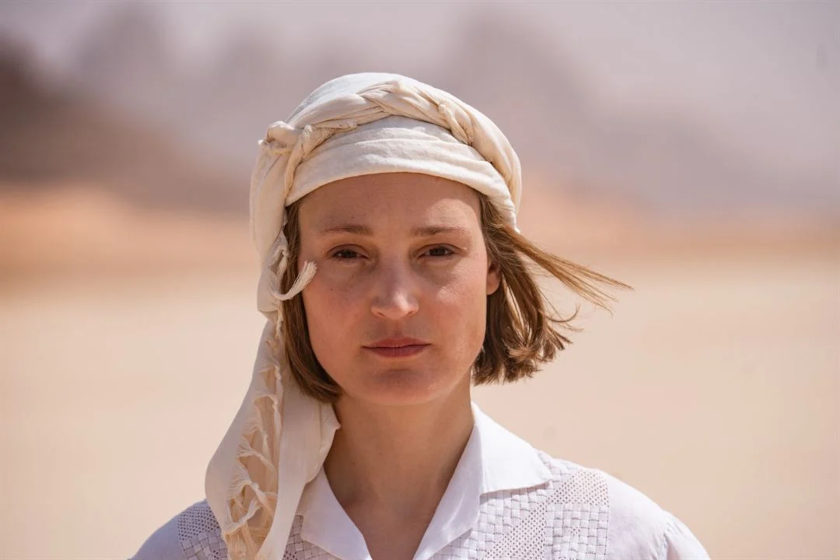Vassilis Kroustallis reviews the Margarethe von Trotta biopic drama 'Ingeborg Bachmann: Journey In the Desert'.
'Truth is within human reach'. And this is definitely what Margarethe von Trotta wants to do with her biopic female subject, the Austrian feminist poet Ingeborg Bachmann (played with an extraordinary sense of ease by Vicky Krieps) in 'Ingeborg Bachman: Journey In the Desert'. Yet, in this immaculately produced work, she somehow forgets to pinpoint her character apart from the male object of her affection -and torment.
Ingeborg Bachmann (1926-1973) had a celebrated career as a poet and radio play author, trying her hands into opera libretti and other forms of writing as well. Also, moving from Austria to Germany to Switzerland to her favorite Rome helped her be adaptable (but also co-dependable). In her cinematic incarnation, Ingeborg Bachmann is mostly tied to an abusive relationship with Swiss theatrical playwright Max Frisch (an incredibly consummate Ronald Zehrfeld) during her 1958-1963 years. von Trotta starts with a nightmare of dependence (and ends up with a vision of liberation) of a writer tied up with people -instead of their own work.
The film goes back and forth into three stages of Ingeborg Bachmann's life: her acquaintance, seduction and finally co-habitation with Max Frish in the gloomy Zurich, her trip to the Egyptian desert with the young playwright Adolf Opel (Tobias Resch), and -in brief- her moments of breakdown. The breakdown and substance abuse seems to have caused Bachmann's life, yet von Trotta rightly does not dwell on these details. She crafts her film as a back-and-forth remembrance and telling of those stories;, however skillfully they are being tied together, they still leave unexplained the mystery of Ingeborg Bachmann's identity (and its many secrets).
Was Bachmann really a person of an independent, artistic mind who needed a father figure to be seduced? Its own cinematic relation with Max Frisch seems to imply that, and it also seems to tell that, whenever her aspirations were betrayed (she calls them 'a pact' between the two parties), she grows increasingly upset and distressed. Yet, Bachmann is mostly hetero-defined in this film -tellingly by her brilliantly explained ups and downs with Frisch, even though one can still claim 'Is that all there is' to her portrayal.
The liberating desert trip looks like an exotic moment with some fluid sexual moments in between, yet too easily put together to justify an idealistic self. Between the Bergmanesque reality of the everyday couple life and the David Lean-hommage exoticism, von Trotta leaves many gaps in a character that looks definitely more interesting between the frames rather than at the center of it.
Vicky Krieps once again fills the void between an abused partner and an idealistic dreamer, by endowing the screen with content in her eye expressions and movement in her entrances, from fright to absolute body stillness. She is helped with first-class costume choices and lighting that knows how to differentiate between the fragile and the harsh. Her character looks lost in words in the absence of a healthy relationship -and that still looks unfair to her. Yet the rhythm of the film, as sober as it should have been expected, does capture a chord in identifying with women who simply want to commit to something different than they should have done -and suffer the consequences of it.
More imposing than contentful, 'Ingeborg Bachmann: Journey In the Desert' brings another female creative person into focus. It won't fall into the trap of easy dramatic exploitation, but it would certainly not highlight a human character apart from the bipole of victim and perpetrator. Still, its guilty pleasures and the craftsmanship of an auteur (and both leads) are still there, ready to be discovered.
'Ingebord Bachmann: Journey In the Desert' screened in the International Competition of the 73rd Berlin Film Festival

